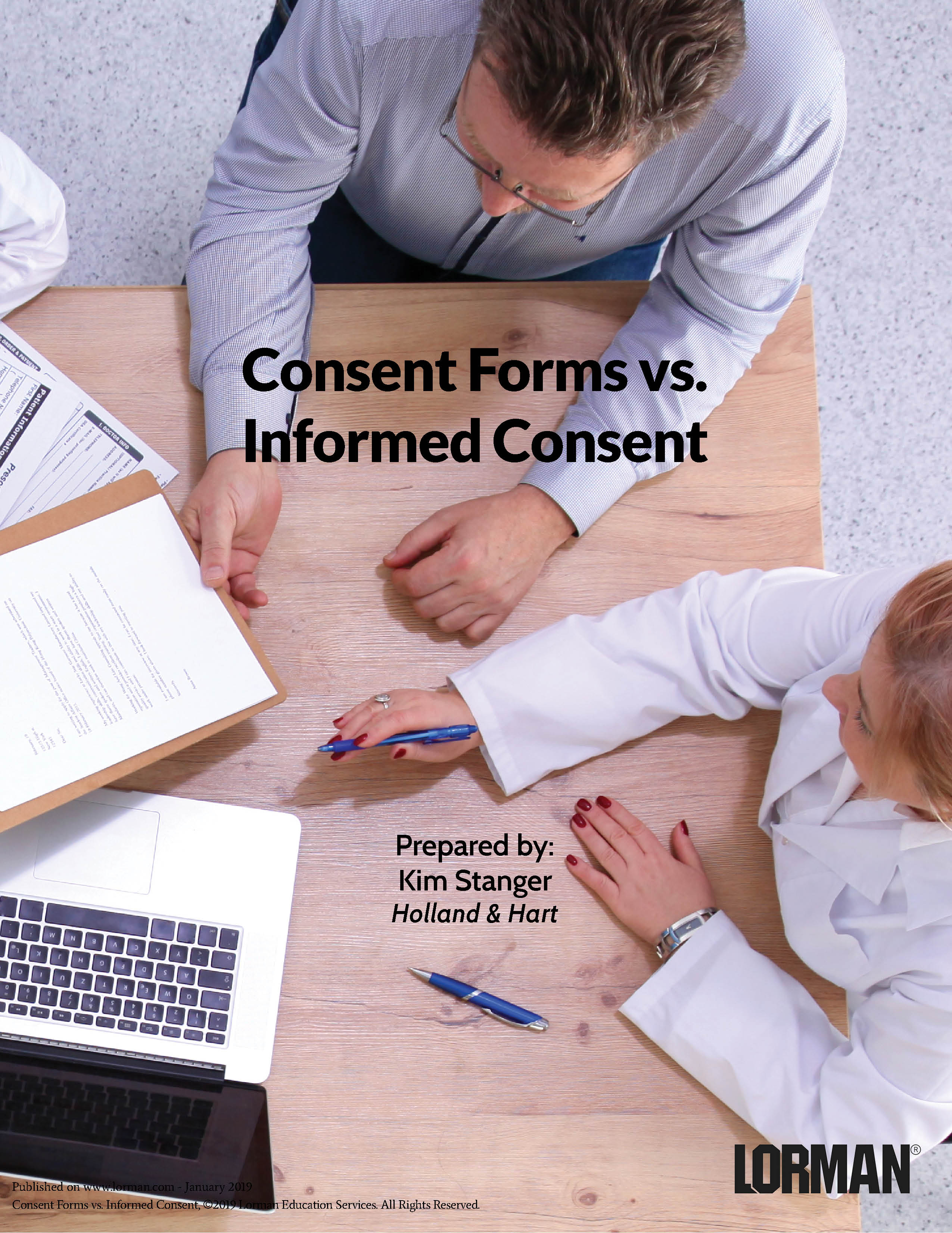To be effective, a patient's consent must be informed.
Except in emergencies, health care practitioners must generally obtain the patient's informed consent before providing treatment. If the patient lacks capacity due to age or incompetence, consent must be obtained from a personal representative authorized by law to provide consent. Failure to obtain or properly document informed consent may subject practitioners to civil, administrative, and/or criminal liability. This white paper reviews the importance of periodically reviewing consent processes and forms to ensure that they adequately establish and document valid informed consent.
Agenda
Faculty

Kim C. Stanger
Holland & Hart LLP
- Partner in the office of Holland & Hart LLP
- Practice emphasizes all aspects of health law, including regulatory compliance, risk management, health care transactions, and defense of individual and institutional providers in administrative and civil litigation
- Frequent speaker at local, regional and national conferences for health care providers, and the principal presenter of the firm’s monthly health law webinar series
- Frequent author on health law related topics, including national publications and the firm’s regular health law alerts
- Adjunct professor, Health Law, Boise State University
- Member of the American Health Lawyers Association and the American Bar Association Health Law Section
- Best Lawyers in America—Health Law since 2011; Lawyer of the Year—Health Law, 2014
- J.D. and B.A. degrees, Brigham Young University
- Can be contacted at 208-383-3913 or [email protected]
All of your training, right here at Lorman.
Pay once and get a full year of unlimited training in any format, any time!
- Live Webinars
- OnDemand Webinars
- MP3 Downloads
- Course Manuals
- Audio Recordings*
- Executive Reports
- White Papers and Articles
- Sponsored Live Webinars
Additional benefits include:
- State Specific Credit Tracker
- Members Only Newsletter
- All-Access Pass Course Concierge
* For audio recordings you only pay shipping
Questions? Call 877-296-2169 to speak with a real person.
Thank You!
Download White PaperMore Program Information

Access to all training products $699/year
Unlimited Lorman Training
With the All-Access Pass there is no guessing what you will need for your yearly training budget. $699 will cover all of your training needs for an entire year!
Easy Registrations
Once you purchase your All-Access Pass you will never be any further than one-click away from attending any Lorman training course.
Invest in Yourself
You haven't gotten to where you are professionally by luck alone; it's taken a lot of hard work and training. Invest in yourself with the All-Access Pass.